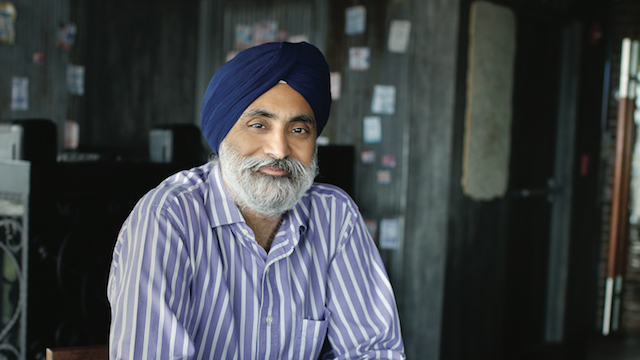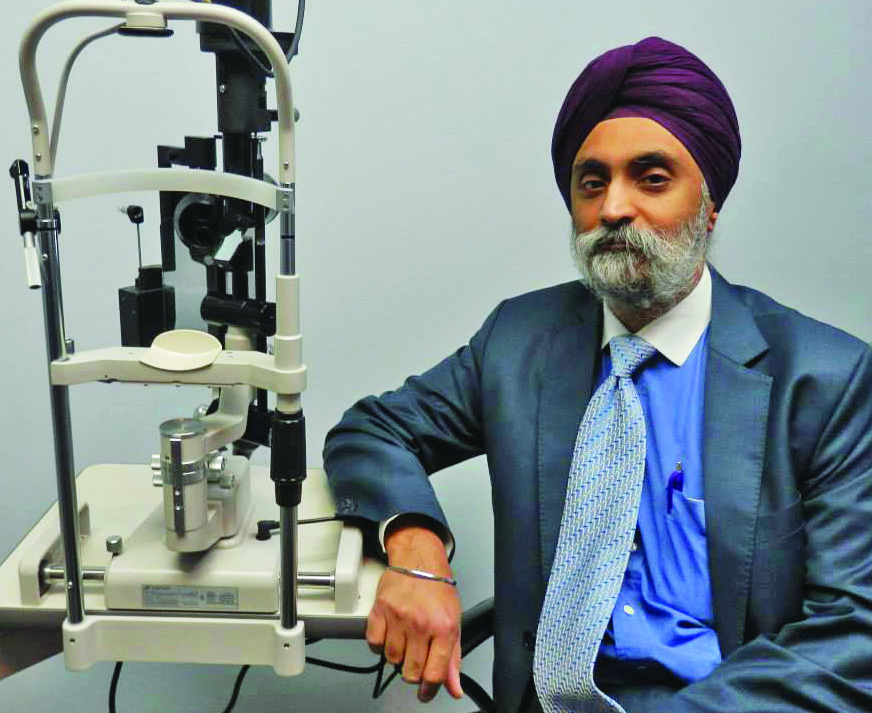Dr. Navaneet Borisuth’s fervent dedication and meticulous eye for detail form a winning combination for success.
By Ashima Sethi
As an established ophthalmologist and owner of the innovation-driven Virdi Eye Clinic and Laser Vision Center in Rock Island, Illinois, Dr. Navaneet Borisuth proves that a childhood dream can become a reality with unwavering commitment, perseverance and a positive attitude. Having achieved sought-after certification from prestigious establishments including The University of Chicago, Tufts University School of Medicine and Northwestern University, Dr. Navaneet now uses his wealth of knowledge and experience to forge new grounds in the areas of eye and vision care. He shares his inspiring journey with Masala.
Tell us about your professional background.
I’ve been in the ophthalmic practice for 20 years now. My journey began at Ruamrudee International School, after which I went on to complete my undergraduate degree, medical degree and PhD at The University of Chicago. Until I got my PhD, I was unsure about whether to pursue clinical practice or academics. Receiving my degree made me realise that I really enjoyed the research aspect, and so I went on to join my current practice, which I took over as an owner eight years ago.
When did you realise you wanted to pursue this area of medicine?
At the age of eight, I knew I was going to be one of three things — a neurosurgeon, hand surgeon or an ophthalmologist. I must have seen something on TV that really fascinated me. The common thread between them is that they’re all microsurgical approaches. So after completing high school, my pursuits were just an extension of this realisation where I wanted to get a good education, attend medical school and go from there.
What was it like studying for a degree in ophthalmology?
It was always a challenging experience because there was the need to keep your grades up in order to secure a residency. These were very hard to get because there aren’t a lot of positions available in ophthalmology, but I never looked at the situation as impossible. I knew it was a challenge and I also knew that I was going to get there. It was not a matter of if, but when.
You moved from Bangkok to America to further your study. What challenges did you face adapting to a completely new culture?
I left Bangkok in 1983, and back then, it was very different from what it is today. There were very few high-rises, so moving to the USA was like living in another world. I also experienced quite a bit of culture shock, because as Indians, we are taught to be introverted, while the American culture is the total opposite! You really had to speak up about what you thought or felt, so I had to overcome my stutter and fears of public speaking by learning how to express myself better. It was difficult but a great learning experience, and I’ve definitely come out stronger.
When choosing to move abroad, did you have the support of your family?
I believe it takes a village to raise a child, so without my family’s support, I wouldn’t have been able to get to this point. My parents never told me my dreams were too expensive or out of reach, even though my decisions were a big financial burden on them. For example, choosing to pursue a PhD was never a part of my initial plan, and it added three extra years onto my higher education, yet my parents still supported me 100 percent. I think the value of education can’t be measured by money, because it sets you up for your entire life, and the foundation that you build in those formative years is essential.
After completing further study, where did you work in the USA?
After completing my MD and PhD, I did a residency in Boston for three years where my learning was concentrated on the complexities of the human eye. When you’re in medical school, you learn about the entire human body, but a residency is when you try to gain the skills needed to become a great ophthalmologist. The eye may be a small organ, but there is no other structure in the body that is as diverse.
After living in many large cities, what made you choose a more suburban lifestyle?
It was the opportunity that presented itself. After Boston, I returned to Chicago to do a super specialisation in glaucoma, and one day at Gurudwara, I ran into a cardiologist who asked me if I was looking for a job. He had a partner who was seeking an associate, and after we were introduced, we realised that we wanted to achieve similar things. He had started a practice three hours from Chicago that focused on innovation, so I ended up branching out from just cataract procedures to Lasik, retina and glaucoma, which was what I wanted to do.
Why did you decide to stay in America rather than return to Bangkok?
Healthcare in the USA is one of the few unmet needs, and I felt like I could really deliver quality healthcare to the subset of the population that needed it. At my practice, we don’t turn anybody away if they don’t have insurance. We’re one of the few doctors in the area that will welcome you with open arms, because it should be the mission of any doctor to want to provide compassionate care.
While running your clinic, how do you keep up with the technological developments in the field of ophthalmology?
It’s a constant learning process. Not only are we expected to maintain accreditation, but if you want to be state-of-the-art, then you have to be willing to take risks. There is a whole class of surgical techniques you have to keep up with and new technologies are found every few months, so it’s all about being able to identify what procedures will withstand the test of time.
What advice can you give to individuals who wish to move abroad to achieve their career goals?
Have a singular focus on what you want. Nowadays, many of us are trying to be diverse, but I don’t think that’s necessarily the best approach, because being too multifaceted presents many distractions. It’s key to know what you’re good at and what your limitations are. For example, I meet many patients with end stage diseases and I have to know what I can provide. If I can’t help then I get them in touch with people who can provide the care they need. So I think that’s the key. Have a single focus, work hard and know your limits.







